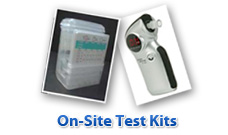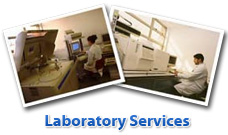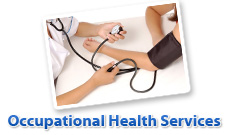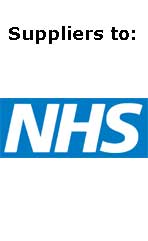Substance Misuse Awareness Training In The Workplace
Encouraged by a demand to provide health, safety and well-being of members of staff, employee substance abuse screening has gradually become noticeably common within England and Scotland. Having said that, there are still a significant number of misinterpretations surrounding the process, which can most likely generate worry among the employees involved in testing.
Substance Misuse Awareness Training In The Workplace – Exactly where are the threats?
A significant proportion of the population get the idea that the impact of drugs and alcohol throughout the workplace is a trivial problem. Everyone has taken notice of Christmas time drink-driving campaigns and know that drug driving and drink-driving isn’t safe, so can’t we trust in the general public’s common sense? Alas, as many as one-half of all roadside and industrial deaths around England and Scotland relate to drink, drug misuse, or a combination of both. Present-day statistics prove that over 70% of drug abusers are engaged in full-time work, meaning that the average drug abuser is, effectively, the average staff member. Published Home Office statistics put the number of 16 to 29-year-olds who used illegal drugs in the last 12 months at a significant 50%. Therefore, this shouldn’t be seen as someone else’s issue, it is a factor to consider in every work environment. While the recreational use of illicit substances may not necessarily point to a tendency to ignore risks within the workplace, it does significantly increase the likelihood of workplace accidents and incidents, attendance and punctuality issues, a drop in productivity, damage to plant and equipment, being the target of legal action and a much higher turnover of personnel.
Substance Misuse Awareness Training In The Workplace – What is your recommendation? Isn’t random drug screening difficult to do?
Many businesses only conduct a workplace drug screen after a workplace accident, an incident or near miss, or when they find reasonable cause for concern or suspicion that a worker may be unsafe to be in the workplace. Given the large assortment of possible threats within heavy industrial company premises, a lot of workplaces see it as being entirely logical to carry out testing in such instances, as a way to prevent them occurring in future.
However, random testing brings the testing process to the next level, whereby a predetermined sample of the personnel is randomly selected to volunteer a breath and urine sample. You may see this as a little invasive, though it is pretty normal for as little as five percent of the staff to be tested up to once every 12 month period. This means that only one in 20 staff being drug screened, or maybe, as an employee, your chance of being subject to a screen could be just once every 20 years. As incredible as it seems, such minimal screening has been documented to reduce rates of failure from as high as 46% down to as low as 2% in only a handful of months. This might indicate that the commonplace drug misuser found within the work environment isn’t addicted and unable to change, but is merely making decisions about their lifestyle which might be adjusted towards a more agreeable outcome.
Substance Misuse Awareness Training In The Workplace. Is this seen as an invasion of a person’s civil Liberties?
Although certain individuals within the business may be initially resistant to the prospect of workplace screening, the bulk of them get the idea that this is being conducted to underpin the health and safety of everybody in the business. Provided the amount of on-site drug screening is comparable to the possible dangers found in the business and does not intentionally interfere with employee time outside of work, it will not represent a threat to staff human rights. Across the USA, around 98% of the largest 1000 companies drug and alcohol screen their members of staff without issue.
Where is the danger while misusing illegal drugs outside of work?
Countless illegal drugs have established a less dangerous image due to their continued exposure within the nation’s television, radio and newspapers. Undoubtedly, phrases including “recreational cocaine use” are responsible for a significant deal of harm in misinforming impressionable young people. For a significant proportion of people, the use of cocaine is even more addictive than heroin and, for this reason can’t be abused on a recreational basis without considerable threat of addiction. Dependency aside, the level of cocaine purity has fallen from approximately forty five percent purity in 2004 to a low of just 25 percent purity as of 2010 (with the purity of cocaine at an all-time low of 9 percent currently being reported). Shockingly, the compounds that dealers use to add mass to the cocaine powder often range from dangerous anaesthetics, cancer-causing chemicals, pet worming agents, all the way through to to insecticides. The reality is you should never place confidence in a drug dealer.
In fact, substances typically thought of as soft drugs still carry risks. Presently in England and Wales, a shocking 92% of patients admitted for therapy for mental illness are regular cannabis users. With this in mind, workplace drug testing unquestionably possesses the opportunity to take on wider antisocial and health concerns as it comes to be more commonplace.
To discover more about drug and alcohol screening along with home drug test kits, check out www.drug-aware.com
Author biography: Christopher Evans is the Technical Director of Drug-Aware Ltd, a supplier of Substance Misuse Awareness Training In The Workplace, alcohol and drug test devices, lab services as well as alcohol awareness training sessions. He has trained literally thousands of delegates spanning hundreds of companies, Her Majesty’s Prison Service, the British police and hospitals and GP surgeries across the United Kingdom.








